10 Ways to Encourage Creativity in Children
As parents, many of us constantly search for new ways to inspire and encourage our children’s curiosity, creativity, and interest in the world around them, and help them grow up successful, innovative and productive members of our society.
Ways to boost creativity:
- Role Playing. “Mom, can you play with me?”
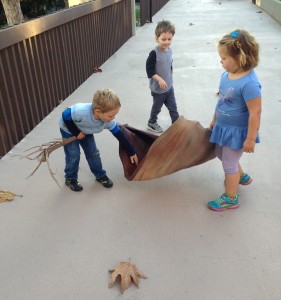 How often do we hear those words? And what kind of games do our kids want to play most? The most exciting and creative play is a role playing- making up new games, songs and stories, coming up with outfits, characters’ voices, taking turns, drawing new ideas, etc. Such games can go on for hours and even days, bonding us with our children tighter and creating a more satisfying relationship.
How often do we hear those words? And what kind of games do our kids want to play most? The most exciting and creative play is a role playing- making up new games, songs and stories, coming up with outfits, characters’ voices, taking turns, drawing new ideas, etc. Such games can go on for hours and even days, bonding us with our children tighter and creating a more satisfying relationship. - Building Things. I didn’t have Legos as a child, but I recall building
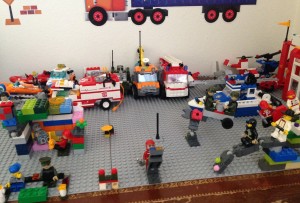 many working cars (school buses, taxis, dump trucks) using a cartoon, round cups for wheels, pencils, and a toy motor. When I went to the 1st grade, I signed up to the class of the young technician and was fascinated with ways to produce elementary electricity. To date, and being a mom, I can fix minor electrical problems around the house and enjoy doing it.
many working cars (school buses, taxis, dump trucks) using a cartoon, round cups for wheels, pencils, and a toy motor. When I went to the 1st grade, I signed up to the class of the young technician and was fascinated with ways to produce elementary electricity. To date, and being a mom, I can fix minor electrical problems around the house and enjoy doing it. - Telling Stories. All kids love telling stories. Writing those stories down, drawing scenes and characters, and publishing them online on the kid-friendly websites, make the projects fun, memorable and gift-appropriate.
- Sharing Photos. A number of internet-based image publishing companies help create the original projects about your recent trip, school event, or a holiday with ease and then even share and collaborate with friends and family.
- Learning to play an instrument. Growing up in the musically-inclined family of the engineers,
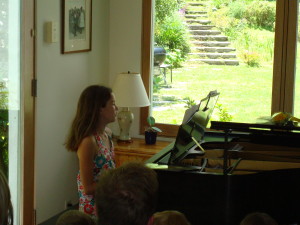 I began taking piano and voice lessons at age 5. Even though I did not like practicing scales as a young child, I vividly remember exciting daily activities with my childhood friend, during which we composed musical duets on the piano and then played them for our parents in four hands!
I began taking piano and voice lessons at age 5. Even though I did not like practicing scales as a young child, I vividly remember exciting daily activities with my childhood friend, during which we composed musical duets on the piano and then played them for our parents in four hands! - Taking singing lessons. Running a music teaching business, I often tell parents how fun voice lessons are! Personally, I have never met a child who would not like singing. Having taking voice lessons and participating in a choir as a child, and then conducting a children’s choir as an adult, I have seen children transform during the lessons, forgetting the thoughts of daily troubles and diving into the world of music, beauty and dreams.
- Staging a Theatrical Show. When I was growing up, my parents’ friends’
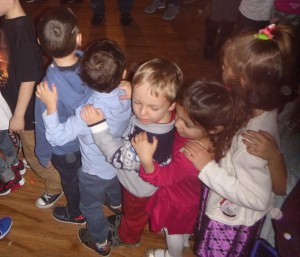 and our families were
and our families were 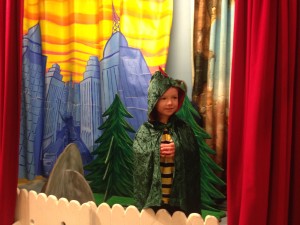 meeting weekly for cheerful sport, art or simple fun activities. One of those gatherings was the theatrical shows, which we were staging in someone’s living room and recording on the video. We created names for our shows, plots, actors, roles, and ridiculous and hilarious outfits. The shows were frequently interrupted by our laughter during each performance, and then there were even more laughter during video viewing times.
meeting weekly for cheerful sport, art or simple fun activities. One of those gatherings was the theatrical shows, which we were staging in someone’s living room and recording on the video. We created names for our shows, plots, actors, roles, and ridiculous and hilarious outfits. The shows were frequently interrupted by our laughter during each performance, and then there were even more laughter during video viewing times. - Performing in a Music Show. Singing together,
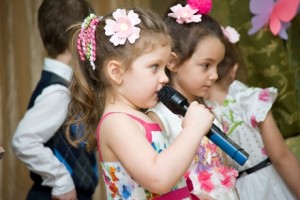 making up songs and performing as a group is an incredible, relaxing and enjoyable activity for a whole family.
making up songs and performing as a group is an incredible, relaxing and enjoyable activity for a whole family. - Making Art. I love a local Costco wholesale store. Besides the items I enjoy buying there, this is the place where I pick up the very large cartoon papers
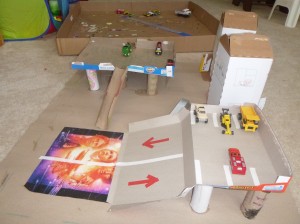
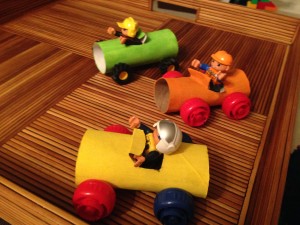 and being thanked by the personnel for recycling them. Those huge cartoon papers along with the paints (from oil to water-based), brushes, stickers, cut-out stamps made of potatoes, bell peppers, and such unable my kids and I create roads, cities, holiday arts, music instruments (see some of our projects here: Music DIY for Kids) and great mood any time!
and being thanked by the personnel for recycling them. Those huge cartoon papers along with the paints (from oil to water-based), brushes, stickers, cut-out stamps made of potatoes, bell peppers, and such unable my kids and I create roads, cities, holiday arts, music instruments (see some of our projects here: Music DIY for Kids) and great mood any time! - Learning a new language. I feel joy watching many local children switching with ease between two or more languages. Being a bilingual parent, I learned two new languages as an adult and benefited from it not only by enjoying the process of learning and improving my memory, but also by freely using them in different companies, at work, and by reading some of the world literature in the original language.
About the author: Olesya MacNeil is the founder and CEO of Music Teacher LA – Los Angeles and South Bay’s provider of quality private Music Lessons for Ages 4-up and Piano Tuning Services.

